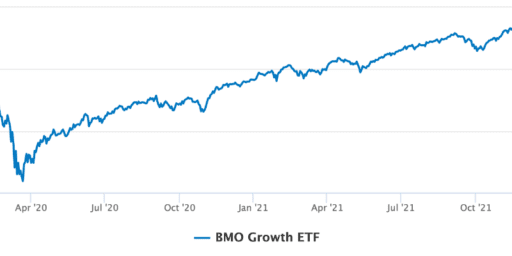Best Financial Advisors in Canada
When looking for the best financial advisors in Canada (or best financial planners in Canada) you’re going to run into a lot of slick salespeople who are really good at using confusing language and scaring you into the financial products that pay them best.
Canada’s mutual funds and insurance products are amongst the most expensive in the world, and there is a massive amount of money to be made by selling them to you – even if they’re a really bad fit for your situation.
Many people think that choosing the best financial planner is simply about picking the person that provides the best “hot investment tips”. This is a huge mistake.
We are all psychologically vulnerable to sales tricks like someone writing down our family’s names in our file – and then being asked about them by name when we chat once per year. Small talk feels nice, puts us at ease, and lets the seller (aka “financial advisor”) establish a cycle of trust with us. It also has no bearing on if they are a good financial advisor.
Here are my four key criteria for selecting an advisor:
- Are they fee-only and advice-only financial planners?
- Do they embrace a fiduciary duty towards clients?
- Are they willing to fully explain their fees in easy-to-understand terms?
- Are they willing to provide references?
If the financial advisor doesn’t fully satisfy these four key conditions, they are eliminated immediately. No wiggle room on these fundamental criteria!
After slimming down the field, I give my potential advisors a quick Google to see what personal reviews exist out there. I also like to see if unbiased financial columnists have ever talked to someone from their advisory company.
After all, I know that if I agree with what folks have written in places like the Globe and Mail and Financial Post, then I can see if they share my same values around financial planning. I also benefit from the fact that editors have pre-screened for a certain degree of credibility. After all, if the top financial podcasters, best personal finance columnists, and other financial professionals all want to interview you as the expert – then you must be doing something right!
Canada’s Top Financial Advisor Company: Objective Financial Partners
That transparent selection process is how I came to find Jason Heath and his team at Objective Financial Planners.
Here’s why I think Objective is the best financial advisory company in Canada:
- Google Jason Heath – you’ll see that he is an absolute expert when it comes to Canadian financial planning. Very few financial advisors are willing to stick their neck out by writing for as many publications as Jason does.
- Absolutely no commissions or kickbacks from selling products of any kind.
- A very simple payment process. You tell them what you need – they tell you what it will cost.
- No confusing percentages of your portfolio are taken away each year (often called “Assets Under Management” – or AUM – by many financial planning companies).
- Jason’s team is handpicked with a wide array of experience in niches like accounting, expat finance, corporate finance, estate planning, retirement planning, and senior citizen financial planning. This range of expertise allows the firm to answer any questions you can throw at them.
My personal experience says that can’t find that combination of objectivity, transparent fee structure, and elite level of expertise anywhere else in Canada. You can see for yourself what kind of services that Objective offers by clicking the button below.
My Personal Experience With Objective Financial Partners
Several years ago, I wanted some help from a wealth management company with a wide range of resources and experience to double check my own planning. My wife and I’s finances were getting increasingly complicated due to selling a small corporation, handling cash flow from a couple of other small ventures, and optimizing the taxes for two teaching incomes as well.
Finally, we were considering moving overseas, and so we had some really unique questions about taxation for Canadian residents looking to move abroad.
Jason and his team took their time in making sure that they fully understood what we needed.

Then they gave an estimated quote for how much time it would take to answer all of my questions, optimize my tax planning (plus prepare my actual tax forms for the CRA), and present me with a comprehensive financial plan. They would also look over what I was already doing and advise me on any pros/cons or tradeoffs that I might’ve not considered.
After I double-checked to make sure that there were no percentages of assets being charged, or commissions on products, I agreed.
The return on investment that I received was excellent. I saved thousands on making sure my taxes were prepared the right way.
But even more than the money I saved upfront, I got the peace of mind that came with having a team of experts answer every single follow up question and “what if” scenario that I could come up with. After hiring Objective, I was 100% sure what direction I wanted to take, what my options were, and how I could navigate the choices ahead of me. They more than delivered on what they had promised, and they were well within the initial quote that they provided during our first no-obligation video chat.
I’m not saying that Objective is the only game in town when it comes to good Canadian financial advisors, but they are simply the best combination of expertise and transparency.
I’ve long counted Robb Engen a friend, and he is a trusted public figure in a similar way to Jason. But Robb is a one-person operation and so he is self-admittedly limited in terms of the number of clients he can take on, and the complexity that he can deal with.
I admire the team at PWL Capital, and I think they put out some really interesting research. That said, I do not agree with the way they charge for their services. PWL uses the AUM model that I will describe in detail in just a second. While I would argue that PWL’s AUM model is superior to how companies like Edward Jones, Raymond James, and Investors Group make money, it’s still not great.
I mean – here’s the deal: If you don’t believe in your product enough to simply list your fees on your website, that’s a deal breaker for me. I can’t find any concrete mention of fees or costs on the PWL site anywhere. I did manage to find on their podcast where they quoted their fees as being 1% on the first $500,000 invested, 0.76% on the next $500,000, 0.62% on the next million, and after $2 million it will drop down to 0.33%.
So just to clarify, if you had a million bucks (total) invested between your TFSA, RRSP, RESP, non-registered accounts, and then your partner’s investment accounts as well, you’d be paying at least $8,800 for their services every single year.
When you compare that to the quote that you will get from Objective, I think you’ll see the difference pretty quickly. Also, Objective is NOT going to charge you year-in and year-out based on the size of your portfolio!
You don’t have any questions in a given year? Then you pay nothing at all!
Want a double-check that your plan is proceeding correctly and that your investment portfolio is correlated to your goals and risk tolerance? That will be a relatively small one-time fee please.
And again, that’s the difference between Objective, and one of the other best financial advisor companies in Canada – never mind the massive difference between Objective and the rest of the pack.
If you want an in-depth look at the issues with the vast majority of Canada’s financial advisors and the companies they work for, check out our Edward Jones Review and compare the compensation model to what I just described above. I think you’ll see the conflict of interest pretty fast.
Canadian Financial Advisor Fees and Costs Explained
While we’re on the topic of fees and costs charged by Canadian financial advisors, let’s take a second to briefly outline how your advisor gets paid.
There are a few main models of how to pay a financial advisor in Canada, and some advisors charge a combination of these models. I personally think it’s kind of crazy that we don’t have one simple model to pay for advice like we do for a dentist or an engineer, but currently that’s not how it works.
The fee-only, advice-only financial planner: The most simple way to pay for advice. They quote you a basic dollar amount. You pay that dollar amount – once. If you want to set up an annual or monthly meeting with your advisor, you can – and it will cost you the predetermined amount. There are no kickbacks, commissions, or percentages of assets to worry about.
The fee-based assets under management financial planner: This is the type of compensation that PWL charges and that we discussed above. It means that no matter what types of investments that are recommended, the same percentage fee of your portfolio will be applied each year.
Be careful when looking for a fee-based financial advisor that you don’t end up with an advisor fee – plus an additional layer of fees and costs on the products that are recommended. This can be a very expensive way to pay for financial advice, but at least it removes a lot of the incentive to just sell mutual funds no matter what (which is the most common model in Canada, and which we’re about to read about).
The commission-based financial planner: The sad fact is that the most common form of payment for financial advisors in Canada continues to be getting kickbacks (aka: commissions) from the financial products that they sell you. If you walk into a bank, credit union, or one of the big name wealth management companies, you’re almost assuredly going to get stuck with a commission-based financial planner.
In my opinion, this type of financial planning should be avoided at all costs. It is terribly expensive and confusing, as the money is taken out of your investment accounts before you even see it. Avoid this type of financial planner like the plague.
To recap – the most easy to understand type of payment for a financial advisor is the most rare. The type of hidden-fee financial planning that incentivizes financial planners to put your money in high-fee mutual funds is the most popular.
A logical person might ask how in the world that can be?!
It all boils down to how our brains look at money and paying for stuff.
Commission-based financial advisors are able to legally say things like, “Oh you don’t have to pay me today for our financial planning services, the fund company takes care of that.” Then, you get to keep whatever the investment return is when it hits your investment account.
That all sounds like a pretty good deal right?
The problem is that you have likely paid a fee called a Management Expense Ratio (MER) that is 2% or higher – you just don’t ever see it. That money gets paid to the company and the financial advisor before it ever enters your investment account.
Canada has some of the highest mutual fund MER fees in the world! That means that if you’re using a commission-based advisor, not only do they have a lot of financial incentive to give you bad advice – but you’re also going to pay a ton of money for it!
If you have that same million bucks invested with a commission-based advisor, you’re probably paying more than $20,000 to the wealth management company every year without even knowing it. BUT there is no psychological hit to seeing the money come out of your chequing account like there is when you pay for a fee-only, advice-only financial advisor.
I would argue that the entire commission-based fee structure is completely unethical, and that even the fee-based financial planning structure is somewhat confusing (if more ethical and more transparent).
The worst part is that there are probably only about 150 fee-only, advice-only financial planners in Canada. That’s total individuals – NOT companies. It’s simply very difficult to get most Canadians to understand they shouldn’t be paying a hidden percentage of their entire nest egg each year.
Right now, far less than 1% of Canada’s financial planners are fee-only, advice-only planners.
What’s a Financial Advisor, What’s a CFP, and What’s a Financial Planner?
In addition to having a really unethical way of paying for financial advisors in Canada, we also let financial service companies operate in a really grey zone when it comes to what titles people can use.
A reasonable person might assume that to call yourself a financial advisor you must have attained a specific credential or have a specific education background.
That reasonable person would be wrong!
Unless you live in Quebec, you can go to your printer right and print off a sheet that says “Financial Advisor” (or “Financial Adviser” if you prefer), hang outside your door, and boom – you’re now an official financial advisor, ready to provide financial planning services.
The same goes for terms like “financial planner” or “money coach”. These titles have no legal bearing and can basically be used by anyone. I personally know several people who went to work at major financial institutions in Canada, took a three-week course that mostly focused on how to sell mutual funds, were told their pay depended on how much money they could get clients to put into mutual funds – and were then released on to the front lines to provide financial advice to folks.
I know that sounds insane, but I assure you it’s true. If you want proof, here’s an undercover video from the CBC program Marketplace that details exactly what I’m talking about.
The terms that actually have legal meaning in Canada are as follows:
Fiduciary: If you ask someone if they have a fiduciary responsibility to you, it means they legally have to place your needs ahead of the firm’s needs (or their personal paycheque). They can be sued if they are found to have provided you with advice that padded their bottom line but that wasn’t in their best interests.
Certified Financial Planner (CFP): If someone is a CFP it means they have attained a certain level of education and experience within the industry. It is regulated by a professional body.
Qualified Associate Financial Planner (QAFP): Much like the CFP, this is a regulated title. It is often seen as a “bridge” or “stepping stone” to a full CFP.
Now, I should mention that I have seen plenty of really bad financial planners with the CFP designation. Having a CFP doesn’t guarantee that you will receive good advice, but at least it filters out the people that only have 3-weeks of training on how to sell mutual funds.
Financial Planning in Canada FAQ
Why I Don’t Like Canadian Bank Advisors
Most Canadians are probably pretty surprised that they haven’t heard me mention big financial firms yet such as:
- Raymond James
- Edward Jones
- Investors Group (IG Wealth Management)
- RBC
- BMO
- CIBC
- TD
- ScotiaBank
- IA Private Wealth
- CI Financial (Assante Wealth Management)
- Manulife
- Sunlife
Look, I’m sure that there are some good financial planners that work for these companies. I just can’t in good conscience recommend a wealth management company that uses the commission-based structure to hide fees from investors. It’s just really unethical.
For every $100,000 that you have invested in mutual funds with these companies, you are likely paying between $2,000 and $3,000 every single year! That’s whether the stock market makes money or loses money! It’s just a really bad deal.
Ask yourself why you are paying for a service through a convoluted formula that involves percentages of funds. There are no good answers to that question.
Edward Jones vs Advice-Only Financial Planner
| Advice Only/Fee Only Financial Planners | Edward Jones | |
| Is there an upfront quote that is easy to understand? | Yes! | Definitely Not. Many percentages and fees to calculate. |
| Percentage the financial advisor and company will take from your portfolio | 0% | Somewhere in the 1-3% range – see below for details. |
| Are there several layers of additional fees suh cas markups when you buy securities, “strategy fees”, and account fees for every RRSP, TFSA, RESP and investing account that you have? | No! | Yes! |
| Are advisors paid commissions to recommend investments? | No | Yes |
| Are advisors paid commissions to recommend insurance products? | No | Yes |
| Are advisors paid commissions to recommend mortgages? | No | Yes |
| Does the advisory company charge fees for services/products such as account transfers, margin accounts (loans), foreign exchange, trading fees, markups on investments you buy, etc? | No | Yes |
*The above information was interpreted from the Edward Jones “Understanding how we are compensated for financial services” document found here. Please consult this document to fully understand the complexity of compensation involved.
Be Careful With the Media’s “Best Financial Advisors in Canada” Lists
When you Google best financial advisors in Canada you’re probably going to see a bunch of lists from places like the Globe and Mail or other media outlets.
I personally would put absolutely zero stock in these lists.
These news articles are often sponsored, and the criteria they use to determine if someone is a good financial advisor are awful. The most reputable lists (a very low bar to clear) are independently created by using a handful of surveys from customers who aren’t really qualified to know if the advice they received is good or not. Most Canadians don’t even understand how they’re paying their financial advisor!
These lists are often dominated by wealth management companies like the ones I noted above. They often only work with people that have more than $2 Million in investable assets. And of course they do – by putting those folks in mutual funds, they’re making $40,000-$60,000 EVERY YEAR from these clients.
If you decide that my choice of Objective Financial Partners isn’t the right fit for you, definitely choose another independent fee-only, advice-only advisor. Let me put it to you this way – There’s a reason why so many wealth management companies have their names on the side of sports stadiums right?
Guess who is paying the millions of dollars for those naming rights…
Choosing the Best Financial Planner for You
I started with how I quickly filter out financial advisors who don’t meet basic thresholds for independence and morality. If their main source of income comes from nudging you into specific investment or insurance products that pay them hefty commissions, it’s probably time to look elsewhere. In other words, if they’re trying to sell you universal life insurance, or recommend mutual funds as a good investment – then I would run (not walk) away!
Of course, your own checklist for choosing a good financial advisor should reflect your personal situation. You might add a criterion or two that matters especially to you, but honestly, the four points I mentioned earlier should be your non-negotiable foundation.
I’ll never understand how some folks invest more time picking a TV or a cruise vacation, than they do selecting a long-term financial advisor. Let’s be crystal clear: You’re trusting this person with your financial future!
Steer clear of salespeople who excel at small talk and remember your kids’ names, but never actually help you manage your money. A personable demeanor is nice, but it doesn’t secure your retirement. What’s most important is that a financial advisor genuinely takes the time to know you and help you understand why a potential plan is the best fit for your specific goals and resources.
In my view, the best financial planner is someone you can ask anything without feeling silly or guilty – and who can clearly explain why they’re making certain recommendations. They should be able to quickly show you the statistics around why they are recommending a certain path or financial product.
Every single dollar that you pay should be transparent and easy to understand up front. There should be no broad-based percentages of your portfolio or hidden trailer fees. And if you ever hear the phrase “it’s free” or “don’t worry, the investing company pays for my time,” that’s a huge red flag.
I’ll keep updating this article throughout 2025 (and hopefully in the years to come). So, if you’ve had a fantastic experience with a Canadian financial advisor, please share the story in the comments below. I can’t publicly name bad apples for legal reasons, but you’re welcome to describe the practices that made the experience so awful.
I've Completed My Million Dollar Journey. Let Me Guide You Through Yours!
Sign up below to get a copy of our free eBook: Can I Retire Yet?











Great, simple to read and understand article! So true that most Canadians probably don’t even know what quantum of fees they are paying!
Thank-you for this detailed and insightful analysis. It’s unfortunate the hurdle continues to be so high to educate Canadians about the true, hidden cost of commission-based ‘advisors.’ So many think financial planning advice is free with this financial arrangement. When the exact opposite, as you illustrate, is true. Related, 100% agree with your advice re: Jason Heath and Objective Financial Partners.